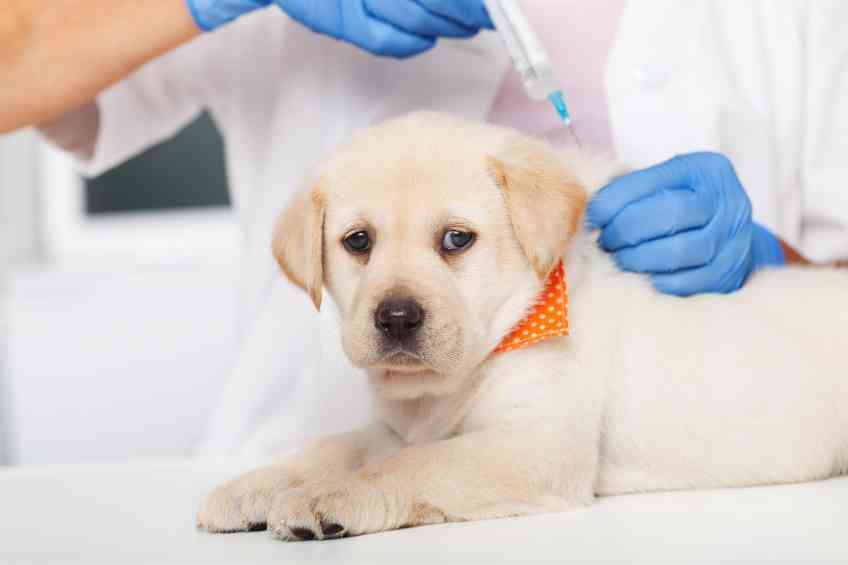By John Salak –
The growing reluctance over childhood and adult vaccines that arose during the pandemic is now ratcheting up reluctance in some to have their dogs vaccinated, putting pets, owners, veterinarians and others at risk.
This reluctance has reached “worrying levels,” according to the Boston University School of Public Health, which conducted research into dog vaccination trends. The university’s researchers found that more than half of people who own dogs expressed some level of canine vaccine hesitancy or skepticism about vaccinating their pets against rabies and other diseases.
It is estimated that about 45 percent of U.S. households own a dog. The university’s survey results discovered that nearly 40 percent of dog owners believe that canine vaccines are unsafe, more than 20 percent believe these vaccines are ineffective, and 30 percent consider them to be medically unnecessary.
The university’s study also noted that about 37 percent of dog owners also believe that canine vaccination could cause their dogs to develop autism, even though there is no scientific data validating this risk for animals or humans.
Reputed to be the first study to formally quantify the prevalence, origins and health policy consequences regarding canine vaccination attitudes, from data that was collected in early 2023 from 2,200 dog owners.
The findings showed a COVID-19 vaccine “spillover” effect in the U.S., stemming from people holding negative attitudes toward human vaccines and, therefore, being more likely to hold reservations about vaccinating their pets. The research suggests these dog owners are also more likely to oppose policies that encourage widespread rabies vaccination and are less likely to make the effort to vaccinate their pets.
The attitudes identified by the study contrast most state-level policies in the U.S., which generally require domestic dogs to be vaccinated against rabies. Proponents of dog vaccinations note the procedure is still essential as canine rabies carries a near 100-percent fatality rate.
Each year, about 5,000 animal rabies cases are reported in the U.S., with more than 90 percent being attributed to confrontations with wild animals. Only about 10% of animal rabies cases in the U.S. occur via domestic animals such as dogs and cats, according to the National Foundation of Infectious Diseases.
The consequences are much more severe in countries where rabies vaccines are not accessible. About 60,000 people die annually from canine-mediated rabies worldwide, the foundation reports.
A decline in vaccination rates in the U.S. could pose serious public health implications for both animals and humans, researchers warn.
“The vaccine spillover effects that we document in our research underscore the importance of restoring trust in human vaccine safety and efficacy,” reported study lead and corresponding author Dr. Matt Motta. “If non-vaccination were to become more common, our pets, vets and even our friends and family risk coming into contact with vaccine-preventable diseases.”
The American Animal Hospital Association calls vaccinations “a cornerstone of canine preventive healthcare” and recommends that all dogs receive a core set of vaccines for rabies, distemper, adenovirus, parvovirus and parainfluenza, and advises that many dogs receive additional “non-core” inoculations for Lyme disease, Bordetella and other diseases.
Beyond this, the rabies vaccine is overwhelmingly safe and effective, according to Dr. Gabriella Motta, a Pennsylvania-based veterinarian.
“With any drug, treatment or vaccine, there is always a risk of adverse effects, but the risk with the rabies vaccine is quite low—especially when compared to the risk of rabies infection, which is almost 100 percent lethal,” she added.










